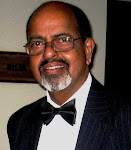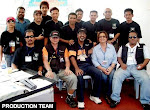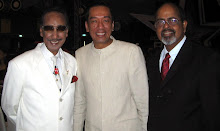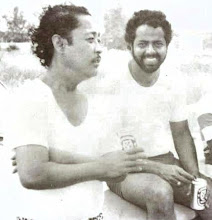Don’t rely entirely on final year exams
By Johami Abdullah Seremban
As a retired teacher who has taught at primary, secondary and tertiary levels between 1960 and 1996, allow me to comment on certain aspects of the education system which is in need of a revamp.It appears a significant number of parents and teachers are concentrating on churning out students with the most number of As in public examinations like the UPSR, PMR, SPM, STPM and equate it with educational excellence. Are these public examinations totally that accurate, valid and reliable? What about other equally important dimensions of the education process that are considered non-academic? Do we test, give allowance or compensate for these areas in Malaysia?
The Einstein and Bill Gates types of successful school dropouts add another dimension to the validity and reliability of traditional educational evaluation and assessment procedures.Parents and teachers in Malaysia are mistakenly led to believe that merely achieving good results in public examinations distinguishes the student from his/her peers in terms of overall excellence. These results have become the sole criterion for judging the student's potential for further education or scholarship worthiness.
This was not so from the 1950s to the 1970s when schoolchildren generally had a healthy mix of academic considerations and "formal" fun. The Muar High School that I attended between 1951 and 1959, for instance, had four fields and had no more than thirty children in each class. Its proximity to sea also allowed for a troop of sea scouts to be to exist. Every major thinker on education since the early Greeks has insisted that a good and all-round education programme should involve the body, the mind and the soul. Progenitors of our own national educational philosophy, the Falsafah Pendidikan Negara, have expressed these ideas in the Malaysian way — by saying the education process must involve the development of the jasmani (body), emosi (emotions), rohani (spiritual) and intelek (intellect).On top of this, the aim of education in Malaysia from the times of The Razak Report of 1956 till now has been national unity. But are we really putting all of these ideas into deeds?
I think it's time we really did. Placing too much importance on examinations has become increasingly apparent since the early 1980s and has reached dangerous levels. It is not uncommon these days to see headmasters and teachers going all out to "outshine" other schools in the 6As/9As syndrome race in the hope of getting a "pat on the back" from their immediate superior(s). Lately, some students have managed to score even higher number of distinctions at one sitting. The results of public examinations are then religiously relied upon to differentiate not only "good" students and "good schools" but also "good" teachers and "good" headmasters, not to mention "good" state directors. In this way, the “sheep” are differentiated from the “goats”.
Even a bright child's performance can be affected if he/she is unwell during the examination period or had just undergone a tragic or traumatic experience prior to the examination. Sixty to seventy per cent of the total marks or final grade can come from the tests and assignments done over the year and the rest from the final year-end examination. This is already happening at universities and colleges. Perhaps it is time to introduce this system at all schools too.
Monday, January 15, 2007
Subscribe to:
Post Comments (Atom)









































No comments:
Post a Comment